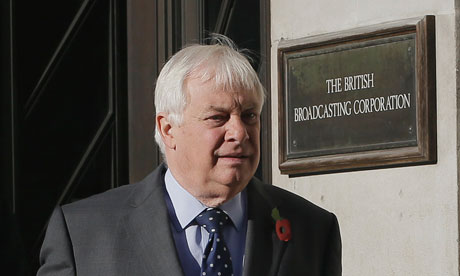
The BBC Trust, chaired by Lord Patten, has been urged to make the selection process for director general more transparent Photograph: Alastair Grant/AP/WP/EP
Royal reporter:WL(weastar times,EP,WP,the guardian):::There are growing calls for the BBC Trust to rethink the way in which it is recruiting the new director general of the BBC, urging a more open and transparent process by asking prospective candidates to publish a public statement of their vision for the organisation.
has been co-ordinated by the campaign group and endorsed by a broad range of journalists, broadcasters and authors, including Peter Oborne, Brian Eno, Andreas Whittam Smith and Juliet Stevenson.
The petition states that an open recruitment process will be critical in securing public trust after a series of mismanaged scandals at the broadcaster.
"We call on the BBC Trust not to compound this by a further purely secretive appointment," the petition says. "We call on any candidates to publish a short outline of their vision of how the BBC should be taken forward and the principles that lie behind it. And we call on the trustees who will make the appointment to request and publish such statements from those they consider or shortlist."
Anthony Barnett, founder of openDemocracy, told the Guardian that an open appointment process would demonstrate the communication and outward-looking approach that the BBC needs to refocus itself.
"The BBC can't regain the trust of the public unless it can learn to trust the public itself, and it can't do that unless it is willing to argue what it stands for," he said. "[Publishing statements] is extremely easy for them to do. It immediately makes the appointment process a simple one, and a public one."
Barnett also pointed to a growing mood among the BBC's technologists that senior management's failure to grasp the power and influence of theinternet has compounded the corporation's recent problems.
The Newsnight report which incorrectly linked a paedophile allegation toLord McAlpine, without naming him directly, was indicative of an editorial management culture that underestimated how fast stories can accelerate online.
Staff in BBC technology have become increasingly frustrated with being sidelined in the corporation hierarchy, and are pushing for a new director general with the commitment and experience to transform how the organisation functions and strengthen its digital services.
Barnett echoed those sentiments. "The first thing that matters is the quality, intelligence and vitality of BBC programming, and the BBC is obviously suffering a loss of nerve that is affecting programming," he said.
"But the programmes are transmitted on a platform – the BBC pioneered radio, then television and then colour television, and now we have a new platform. You've got to integrate the self-belief of programming with a grasp of what the new media platforms really mean."
A handful of digitally-strong candidates have been mooted for the DG role among the technology community, including former BBC News director Ian Hargreaves, author of a government review of copyright reform, former Guardian News & Media director of digital content Emily Bell and Tony Ageh, ex-controller of BBC Internet and co-creator of the iPlayer.
Mike Bracken, former Guardian News & Media director of digital development and now executive director of the Government Digital Service has been suggested, as has head of partnership development for the BBC Archive, Bill Thompson, and Freesat managing director Emma Scott. Tom Loosemore, former head of Web 2.0 for the BBC and now deputy director at the Government Digital Service, is also a popular suggestion in the tech community.
No comments:
Post a Comment